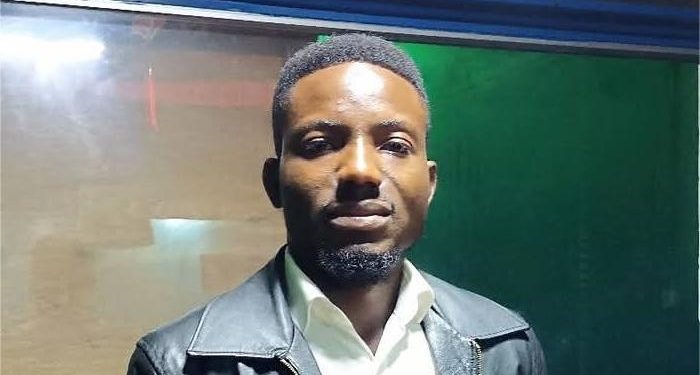By Abubakarr Benson, Executive Director, Centre for Youth Participation in Democracy (CYPaD)
FREETOWN — Liberia, a country located in West Africa and part of the Mano River Union (MRU), has a unique blend of historical and political experiences that have shaped its identity over the years. While it’s often said to have been “founded” in 1822 by the American Colonization Society (ACS)—a U.S.-based organization dedicated to transporting formerly enslaved and freeborn Black people to Africa, however, the truth is more complex: Liberia was already inhabited by several indigenous African ethnic groups long before the settlers arrived.
Technically, if we view Liberia’s history from a political and administrative perspective, freed Black Americans (sent by the ACS) established a new settler colony on the West African coast in 1822, particularly at Providence Island—present-day Monrovia. They created formal political institutions modelled after those of the United States and later declared independence in 1847 (we’ll discuss independence in more detail shortly). In this context, one might say they “founded” the Republic of Liberia.
On the other hand, from the perspective of discovering or settling unoccupied land, Liberia was never truly “founded.” When the settlers arrived, the land was already home to diverse indigenous groups, including the Kpelle, Bassa, Vai, Kru, Lorma, Gola, Grebo, and others—who had their own social systems, languages, and leadership structures. In fact, much of the land used by the settlers was acquired through negotiations (and at times, manipulation) with local chiefs.
For the sake of historical accuracy, instead of saying “Liberia was founded in 1822,” it’s more accurate to say: “In 1822, freed African Americans established a colony in present-day Liberia, which had long been inhabited by indigenous peoples. They later declared it an independent republic in 1847.”
In efforts to establish the political and economic stability of the colony, Joseph Jenkins Roberts (who would later become president after serving as governor of the colony) and other colonists sought treaties with Indigenous Africans and recognition from foreign powers.
On July 26, 1847, Liberia declared its independence, becoming the first African republic to do so. However, Liberia was not colonized by the U.S. or any European power in the traditional sense. Instead, it was established (as previously explained) and governed by African Americans and their descendants (known as Americo-Liberians), with support from the American Colonization Society.
From Whom Did Liberia Gain Independence? This is a million-dollar question that has stirred debate online, especially after the U.S. President praised Liberia’s President for his articulate English. It’s not a new historical confusion; it’s a common misunderstanding repeated over time. But let us dig deeper and unravel the truth.
Technically, Liberia did not gain independence from the United States or a colonial empire like Britain or France. Instead, it declared independence from the influence and administrative control of the American Colonization Society. The U.S. government never officially claimed Liberia as a colony, though it exerted strong influence during the early years of the republic.
Following the declaration of independence, Liberia adopted a constitution modeled after the U.S. Constitution and elected Joseph Jenkins Roberts, an Americo-Liberian, as its first president. In 1849, during a visit to England, Roberts secured British recognition of Liberia as a sovereign nation; and in 1852, in another trip to continental Europe, he acquired recognition from other powers. However, it was not until 1862 that the United States would recognize the independence of Liberia.
For historical significance, Liberia and Ethiopia were the only African countries that were never colonized during the Scramble for Africa in the late 19th century—a period when most of Sub-Saharan Africa was divided among European powers. Still, despite its independent status, Liberia faced decades of internal division between the Americo-Liberians and indigenous ethnic groups.
As a Sierra Leonean and a student of Fourah Bay College, with a deep interest in historical and economic research, it would be historically unfair if I failed to reference Sierra Leone in tracing the roots of education in Liberia—especially considering a key figure like their President, Joseph Boakai, who received part of his early education in the Kenema Secondary School during his formative years.
In the 19th century, many Liberians, particularly Americo-Liberians and elites sought education in Sierra Leone. Fourah Bay College (FBC), founded in 1827, was the first Western-style university in West Africa, affiliated with the Church Missionary Society and Durham University (UK). It became a regional pride of higher learning, attracting students from Liberia, the Gold Coast (Ghana), Nigeria, and The Gambia. FBC earned the nickname “Athens of West Africa” for this very reason.
Now, don’t get me wrong—Liberia did establish its own educational institutions, including the College of West Africa (1839) and Liberia College (1862), which later became the University of Liberia. But for a long time, especially during Liberia’s early development, Sierra Leone remained a regional hub for advanced education. Many Liberian leaders, clergy, and professionals were trained in Sierra Leone during these years.
President Joseph Boakai earned his degree in Business Administration from the University of Liberia in 1972. However, he also served in international roles and engaged with U.S. and ECOWAS institutions—experiences that strengthened his diplomatic and linguistic skills. His praise by the U.S. President for his good English is no surprise, especially when we consider the strong educational foundation he had, and the role Kenema Secondary School, his alma mater—played in shaping his early academic journey.
So yes, historically, many educated Liberians studied in Sierra Leone, especially at Fourah Bay College. While President Boakai did not attend the University of Sierra Leone, his eloquence reflects a mix of Sierra Leone-Liberia schooling, international exposure, and diplomatic service. The educational bond between Sierra Leone and Liberia runs deep and has shaped many of West Africa’s finest leaders over the years.










